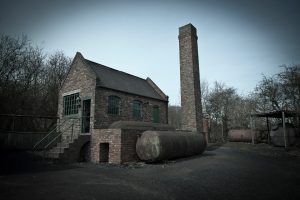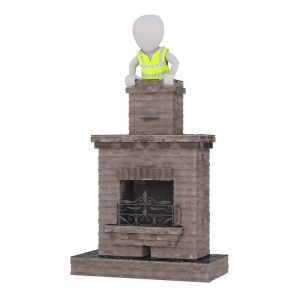Chimney Cleaning is part of NCCI Classification Code 9014
The Chimney Cleaning Industry for purposes of workers compensation is given NCCI Classification Code 9014. This industry has many unique exposures unique to just this industry. Some common types of claims for businesses in the chimney cleaning industry include: client property damage, damage to your specialized equipment while out on a job, an employee causing a car accident while on the job, and stolen supplies or equipment. Because of these risks it is important to get an insurance package that is right for each individual business. Here are five insurance policies all chimney cleaning businesses should consider in order to protect the business properly.

General Liability Insurance
General Liability Insurance will cover a business for normal insurance claims that arise from the business of cleaning, repairing, and installing chimneys. This type of insurance will cover a business in the event an employee damages a client’s roof, chimney, or other property. It will also cover the cost of a lawsuit that arises up to the limits of the policy. These legal costs can be incurred because of a third party lawsuit related to property damage, bodily injuries, and even advertising injuries. The important part to remember in relation to general liability insurance is that it is not all encompassing. There are additional policies nearly all chimney cleaning companies need to secure.
 Commercial Property
Commercial Property
Commercial Property Insurance is needed by a chimney cleaning business only if they operate a physical location. This includes a facility a business rents and it may impact the business owner’s homeowner’s policy if the business operates out of the owners house. Common claims related to commercial property insurance include fire, theft and natural disaster.
Commercial Auto Insurance
Commercial Auto Insurance for a chimney cleaning business is needed by any business who has an employee drive a car as part of their work. This is the case whether the employee is driving a car the business owns, a rented vehicle, their personal car, or even if the owner is driving their personal vehicle for work. If the business owns the vehicle being used for work, a traditional commercial auto insurance policy is the correct policy. If the business has employees who drive their personal vehicle or a rented vehicle, the business will need to include an additional hired and non owned auto insurance policy. This will cover the liability the business faces to third parties for accidents that occur because of the actions of the employee while on the clock.
 Umbrella
Umbrella
An Umbrella Insurance Policy is a affordable way to add to the limits of other existing policies. An Umbrella Policy kicks in only when the limits of the underlying policy are met and it only kicks in on loss that are covered by another underlying policy. If the claim is not covered, an umbrella policy will not kick in in place of the missing policy.
BOP Insurance
A Business Owner’s Policy allows a business to bundle all policies together in to one package. This is beneficial to the business for two main reasons. First, it prevents any gaps in coverage from occurring. A gap in coverage is when a claim occurs where two policies associated with the claim have exclusions related to the particular claim in question. When a business bundles all policies together in a BOP is beneficial to a business is because carriers are more likely to dig deep for additional credits and discounts when they know a business is purchasing multiple coverages. These two benefits make sure a business gets comprehensive coverage at rock bottom rates.
